Keynote Speakers
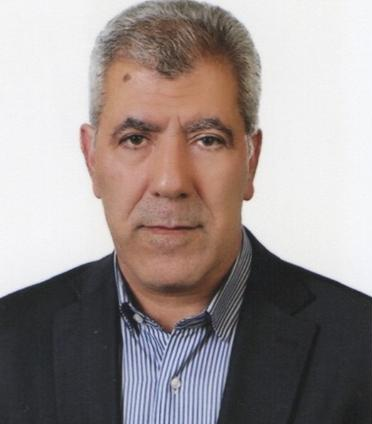
|
Mahmoud Fotuhi-Firuzabad, Sharif University of Technology, Tehran,
Iran
IEEE Fellow |
||
M. Fotuhi-Firuzabad (IEEE Fellow, 2014) received the B.Sc. and M.Sc. Degrees in Electrical Engineering from Sharif University of Technology and University of Tehran in 1986 and 1989, respectively and the M.Sc. and Ph.D. Degrees in Electrical Engineering from the University of Saskatchewan, Canada, in 1993 and 1997, respectively, where he worked as the postdoctoral fellow and assistant professor from 1998-2001 and 2001-2002, respectively. Currently, he is a professor of Electrical Engineering Department at Sharif University of Technology, Tehran, Iran. He is a member of center of excellence in power system control and management in the same department. He was the president of Sharif University of Technology (2014-2021) and Head of the Department of Electrical Engineering (2005-2014). His current research interests include operation and planning of electric power systems, power system reliability, distributed renewable generation, demand response and smart grid technologies. His technical contributions in the field include more than 700 papers, and supervising more than 130 masters theses and doctoral dissertations. These publications have been well recognized in the scientific community with more than 27,000 citations with an h-index of 86. He is the recipient of several national and international awards including World Intellectual Property Organization (WIPO) Gold Medal for the outstanding inventor award, 2003, PMAPS International Society Merit Award for contributions of probabilistic methods applied to power Systems in 2016, Outstanding Researcher Award in the Iranian Power Industry (Iran-2017), Nationwide Outstanding Research Award (Iran-2012), Sixteen Khwarizmi International Award, and 2014 Allameh Tabatabaei Award. He has received the IEEE Transactions Prize Paper Award for the publication “Optimal PMU Placement Based on Probabilistic Cost/Benefit Analysis, IEEE Transactions on Power Systems, 2013”. He is the recipient of the 2025 IEEE PES Roy Billinton Power System Reliability Award. He has been the PI of more than 40 industrial projects, and a keynote speaker in a number of national and international conferences. He has also offered a number of short courses in power systems reliability at academic institutions and industries in Iran and abroad. Dr. Fotuhi-Firuzabad has been a visiting professor in several internationally renowned institutions and universities (Finland-Aalto University, Denmark-Aalborg University, Malaysia- Universiti Teknologi MARA, China-North China Electric Power University). He served as the Editor-In-Chief of the IEEE Power Engineering Letters from 2017 to 2022. He also served as the Associate Editor of Nature Scientific Report, Guest Associate Editor, Special Issue on “Electric Vehicle Charging Impacts on Power Systems”, ”Reliability and Resilience Modelling, Assessment, and Enhancement of Modern Power Systems with Proliferation of Grid-Edge Resources”, IET Generation, Transmission & Distribution, and Special Issue on ”Climate Change Mitigation and Adaptation in Electrical Power and Energy Systems”, International Journal of Electrical Power & Energy Systems. Dr. Fotuhi-Firuzabad is the Deputy Editor-in-Chief, Journal of Protection and Control of Modern Power Systems (PCMP)”, Springer. He is a Fellow of The World Academy of Sciences (TWAS), Associate Fellow of the Iran National Academy of Sciences, and a Fellow of IEEE for his contributions to the application of probabilistic techniques in power systems reliability assessment. Dr. Fotuhi-Firuzabad is currently Editor-in-Chief of the IEEE Transactions on Smart Grid.
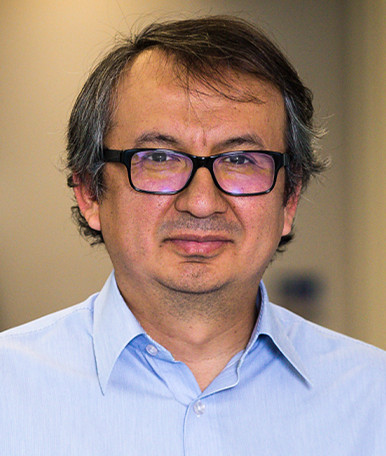
|
Marcos J. Rider, University of Campinas (UNICAMP), Campinas, Brazil
IEEE Senior Member |
||
He received B.Sc. (Hons.) and P.E. degrees from the National University of Engineering, Lima, Perú, in 1999 and 2000, respectively, and an M.Sc. degree from the Federal University of Maranhão, Maranhão, Brazil in 2002; he earned a Ph.D. degree from the University of Campinas (UNICAMP), Campinas, Brazil in 2006 - all in electrical engineering. He worked as a Researcher Associate and Visiting Professor at UNICAMP (2006-2007; 2008-2010), Universitat Politècnica de Catalunya, Barcelona, Spain (2007-2008), Ryerson University, Toronto, Canada (2019) and Toronto Metropolitan University, Toronto, Canada (2025-2026). He was a Professor at Paulista State University in the Campus of Ilha Solteira (2010-2015). Currently, he is an Associate Professor in the Department of Systems and Energy at UNICAMP, researcher 1C of CNPq and IEEE Senior member. Participated as principal investigator or collaborator in more than 30 R&D projects for Brazilian utilities and govern agencies. He has published 6 books chapters, over 180 full papers in scientific events, and over 110 journal papers in scientific journals, most of which have been published in international journals indexed by ISI, which are classified as Qualis A1 by CAPES. The ISI Web of Science database lists more than 4600 citations to his articles (H index = 41), Scopus lists more than 6100 citations (H index = 45), and Google Scholar lists 9400 citations (H index = 53). He has taught in more than 20 different disciplines at the undergraduate and graduate levels, some disciplines at the graduate level are unpublished, and he aims to present the research conducted, contributing to the creation, consolidation of knowledge, and competence in strategic issues within the areas of teaching and research. He has advised over than 50 Ph.D and M.Sc. students. His interests include the development of methodologies for the operation, planning, and control of electrical power systems, and applications of artificial intelligence in power systems.
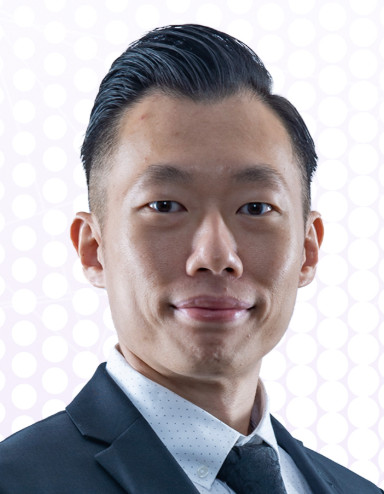
|
Jiashen Teh, Universiti Sains Malaysia, Malaysia
IEEE Senior Member |
||
Jiashen Teh (Senior Member, IEEE) received the B.Eng. (Hons.) degree in electrical and electronic engineering from Universiti Tenaga Nasional, Malaysia in 2010 and the Ph.D. degree in electrical and electronic engineering from The University of Manchester, Manchester, U.K. in 2016. Since 2023, he has been an Associate Professor with the Universiti Sains Malaysia (USM), Malaysia. He is a Chartered Engineer conferred by the Engineering Council, U.K. and The Institution of Engineering and Technology, as well as a registered Professional Engineer with the Board of Engineers Malaysia. His research interests include probabilistic modeling of power systems, grid integration of renewable energy sources, and reliability modeling of smart grid networks. For three consecutive years in 2019, 2020 and 2021, he was among the top 2% of the world's most cited researchers according to field ranked by Stanford University. In 2021, he was given the IEEE PES Malaysia Outstanding Engineer Award.
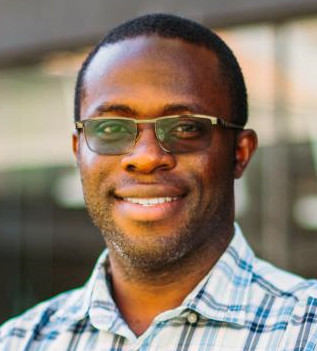
|
David Oyedokun, University of Cape Town, South Africa
IEEE Senior Member |
||
Dr. David Oyedokun holds a PhD in Electrical Engineering from the University of Cape Town (UCT). He completed his postdoctoral study at the South African National Space Agency (SANSA) before joining the department of electrical engineering, UCT, where he is currently a senior lecturer. He is a recipient of the IEEE MGA Gold Award and the EBE Faculty special award for social responsiveness at UCT and Chairman of IEEE South Africa Section. Over the years, he has served in many IEEE committees and organizational units including, IEEE PUW; IEEE Young Professionals; IEEE SIGHT Steering committee; EPICS-in-IEEE committee of the IEEE EAB; IEEE South Africa Section ExCom and led several EPICS-in-IEEE and TISP projects in South Africa. His research interests are in renewable energy integration, power system stability and geomagnetically induced currents (GICs).
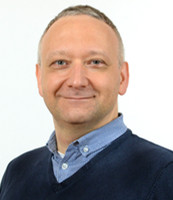
|
Peter Tamas Szemes, University of Debrecen, Hungary
IEEE Member |
||
Dr. Péter Tamás Szemes, Associate Professor, Mechanical Engineer (MSc), Budapest University of Technology and Economics (BME), received his PhD degree in Robotics from the Institute of Industrial Sciences, University of Tokyo. Several years of industrial engineering experience in various R&D projects. He is a member of the IEEE Industrial Electronics Society, the Technical Community on Robotics and Mechatronics, the IEEE Robotics and Automation Society, the Technical Community on Cyber Security, and the Technical Community on Robotics and Mechatronics. His research interest are oriented to the development and optimization of powertrains systems for battery electrical vehicles (BEV); optimization of different powertrain configurations based on modelling and real time measurement data; and Electromagnetic Compatibility (EMC) measurement, product testing and development for electrical high voltage automotive components. Currently, he is the head of laboratory for EMC and ESD Measurements, Vehicle Research Center, University of Debrecen.
